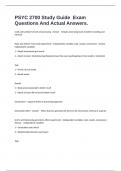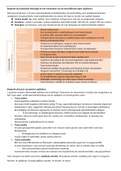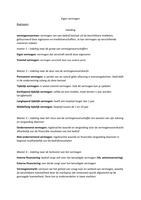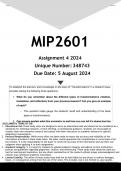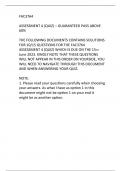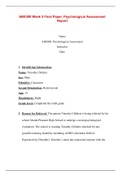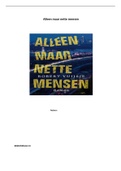Exam (elaborations)
PSYC 2700 Study Guide Exam Questions And Actual Answers.
- Module
- Institution
Craik and Lockhart's levels of processing - Answer Deeper processing leads to better encoding and retrieval Hyde and Jenkins' free recall experiment—Independent variables, task, results, conclusions - Answer Independent variables 1—Depth of processing of words 2—Intent to learn: I...
[Show more]
